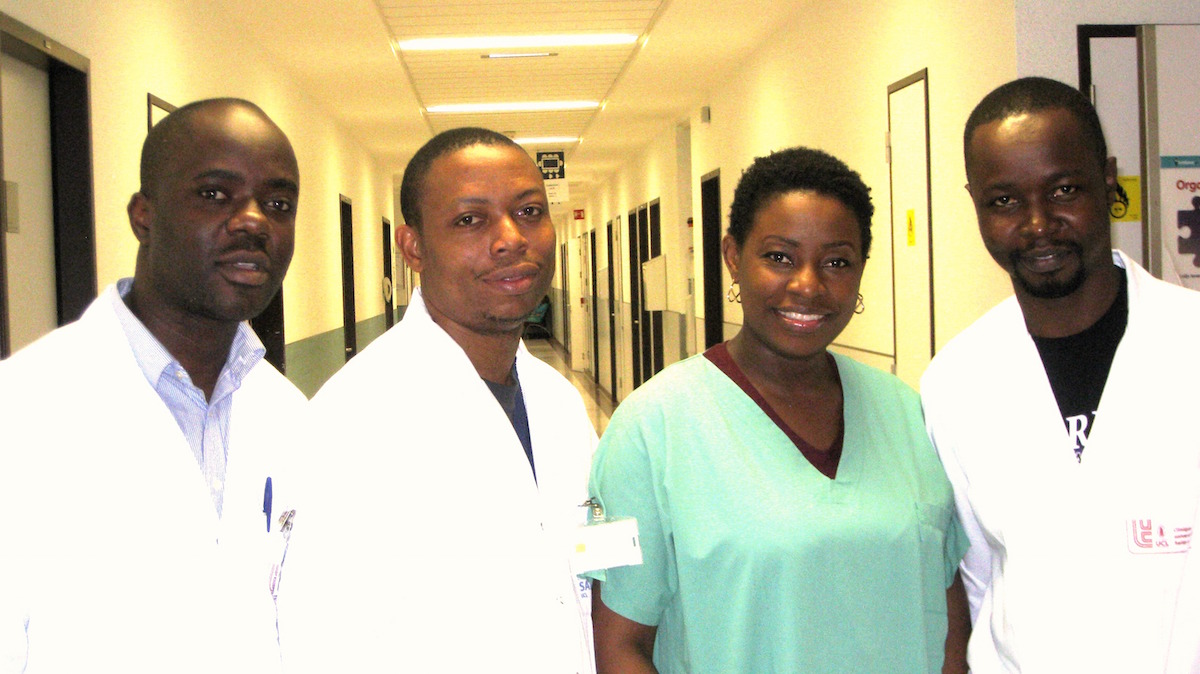The learning program developed by the NGO and their local partners is aimed to reinforce the local staff’s expertise and ensure their autonomy.
Backing and training are performed in medico-technical matters, but also in other sectors when relevant, to ensure the project’s viability (especially in hospital management)
The program offers a range of activities in various forms. In effect, the NGO favours an approach on multiple exchanges: these can vary from short to medium or long term and articulate in different directions.
- “North-South”: within partner countries of the NGO, international experts offer a number of practical and theoretical backing and training sessions, either punctual or on a long term basis, to enable a transfer of expertise adapted to the local reality. These are achieved either during medico-surgical missions (voluntary teams) or in the case of a long term project (avalability of a technical engineer at Clinique Ngaliema in Congo Kinshasa).
- “South-North”: a number of doctors, nursing staff or technicians have been hosted by Belgian hospitals and have been trained within a medical or technical service. This training can be followed on a short term basis (qualifying training, one to three months) or on a long term basis (additional specialisation training for one or two years). The latter then receive a certificate which is recognised by the academic authorities of the native country of the beneficiary of the training. These doctors and technicians , then in turn, convey their learning to their colleagues, back in their country (trainers’ training).
- “South-South”: when relevant and feasible, Chaine de l’Espoir Belgium favors qualifying or specialising training to be carried out between countries in the same continent, and if possible, from the same or neighbouring region. The proximity and sharing of a number of comparable facts, particularly in terms of health care accessibility, will enable the making of partnerships favoring more methodical exchanges than with the European continent.

Qualifying Training
Chaine de l’Espoir Belgium offers qualifying training under the form of traineeship within specialised hospital services with a higher level of equipment and technical expertise than the beneficiary partner hospital. The minimum period is one month. This training is not only offered to medical and para-medical staff, but also to the technical staff: with a view to knowledge update and strengthening the beneficary’s practical proficiency.
It is to be noted, however, that Chaine de l’Espoir Belgium has also supported and financed this type of training for Congolese staff in a South African hospital, where quality standards are similar to those currently existing in Belgian university hospitals.

Complementary Specialisation Training
Long term training supported by Chaine de l’Espoir Belgium are specialisations authorised by a recognised certificate by the academic authorities of the beneficiaries’ country. These specialisation sessions are mainly given within the Cliniques Universitaires Saint Luc, where a specific grant program is arranged for hospital staff issued from developing countries.
Over ten specialists from partner countries of Chaine de l’Espoir Belgium have already been granted this type of training since Chaine de l’Espoir Belgium launched their activities.
The last seminar took place in Cotonou, in Benin, in november 2016 and dealt with orthopaedic and visceral surgery.
